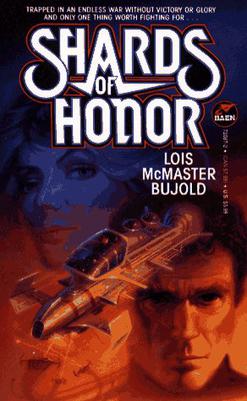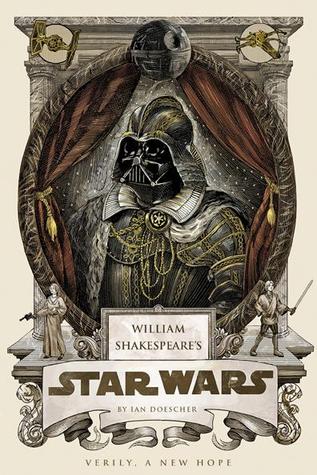Original review January 2012
As a reading experience, I loved Leviathan Wakes by James S.A. Corey. I was sick when I started, looking for the literary equivalent to a Law & Order marathon. Space opera is the police procedural of the science fiction world, and this one has an actual police procedural embedded within. It’s a galactic billiards game, the ordinary made extraordinary through the right place, right time, a bunch of forensics/technology, a lot of fragility of life just on this side of the hard vacuum of space. I mean, gee whiz.
There’s a Jim Anchower article, Jim being one of the “columnists” for the Onion, that describes Star Wars: Attack of the Clowns as “like watching C-SPAN on some other planet” – a bunch of boring imaginary politics playing out in the most expository way possible. Space opera can fall into this so, so easily. The ships embody the engines of society, and authors get caught up in the schematics, reading out the blueprints. Look at this nifty pinball game I made! It’s cheering when books like Leviathan Wakes avoid this trap. The characters here are more types than actual people, but the cultures they inhabit, they were well sketched. This is an alien-less environment (for the most part) – so the conflicts are between people, in social terms: the Belters, several generations out living in low-g on Saturnine moons or asteroids, stretched by weightlessness, grousing about tariffs and taxes imposed by the colonizing Earthers or Martians; the freedom-fighters/terrorists; the subtle pull of cultural gravities in different places.
As befits a dual-author novel, this pings back and forth between two pov characters: a space ship captain cut from the same cloth as Malcolm Reynolds, with more high-handedness and less Han Solo, and a noir-ish cop who getting to old for this shit. The individual sections tend to be beautifully arced, little vignettes which build from one of those “he didn’t know that his day could get any worse” and then ramping up furiously until you hit the next commercial break section totally leaned in, freaking out. Maybe it sounds like I’m making fun of this, and I am just a little, but affectionately so. There is something to be said for this kind of masterful genre writing, the guns laid onto the table in deliberate, methodical gestures, and fired one at a time, hitting their targets with a casualness that belies study, and lots of it. Bew bew! The book is masterfully plotted, and absolutely joyful to read.
But, two things stuck in my craw starting at about half-way point. Miller, our exhausted, alcoholic Belter cop who is in over his head, leaves the culture which props up his personality – types, as I said, more than people – and at this point his character falls apart for me. His motivations become laughable, his psychology almost literally unreal. You cannot take a type like Miller out of his world, because he is his world or the lens on it, the situated observer, the commentary though moving mouthpiece. And his relationship with Julie is squicky in a way I can’t put my finger on, but in a way that dovetails into my next complaint.
At about 3/4 through, two women have a conversation about going to the bar and playing a game together, and then have some teasing fun. This is (I’m pretty sure) the only conversation that keeps this entire 600ish page novel from failing the second two parameters of the Bechdel Test – and that just barely, because this was not a necessary or meaningful exchange. Now, yes, the Bechdel Test was developed for movies, and failing the test does not mean the book sucks. There’s all kinds of situations that fail the Bechdel test because they are small, personal stories that take place with limited characters, and there is absolutely nothing wrong with that. But a tumbling active story taking place all over an entire freaking solar system? It is incredibly discouraging to me to find yet another fictional solar system in which women are only love interests or ball-busting superior officers, vague individuals in a universe peopled by men almost exclusively. Miller’s relationship with Julie, in this context, seems like that shitty thing where a girl becomes an emblem, a chit in a psychological game that moves a man, because a man is what moves. I don’t think I’m supposed to heart Miller and the way this plays out, but it doesn’t feel good to read.
I don’t want to come down on this too hard or act like this book is somehow anti-feminist or anti-woman. It just feels like in riffing on these traditionally boys-only genres – the police procedural, the space opera, the cop show – no one bothered to notice the boys-onlyness. And there are, to make up for this lack, a pretty subtle sense of politics and societal tendencies, and vomit zombies. Vomit zombies! I’m not going to explain, because explanations is spoilers, yo, but the vomit zombies were part of a general inventiveness and genre-specific yee-haw! that I really enjoy reading. This is a first in a series, I am given to understand, and although this one ties off in a way that doesn’t dot-dot-dot to the sequel, I would totally read the next one. Gee whiz!
Edit: I’m feeling a little defensive for bringing up the Bechdel test, for no good reason, because it’s not like anyone has called me on it or something. I went and looked at the books on my space opera shelf, and at least half of them fail this test, as far as I can recall. It’s a pretty common thing. The names thing is little easier to pass in books, because it isn’t hard to name a female character on the page, even if she is throwaway and tangential. The rest though – that happens much less frequently. I would just like us all to image a boy version of the Bechdel test, where we look for a book that fails that, a book where there are not two male characters who have names, they don’t talk to each other, and when they do, they only talk about women. Can you think of even one book or movie that fails this test? I don’t think so. And sure as shit, you can’t think of a hundred.







